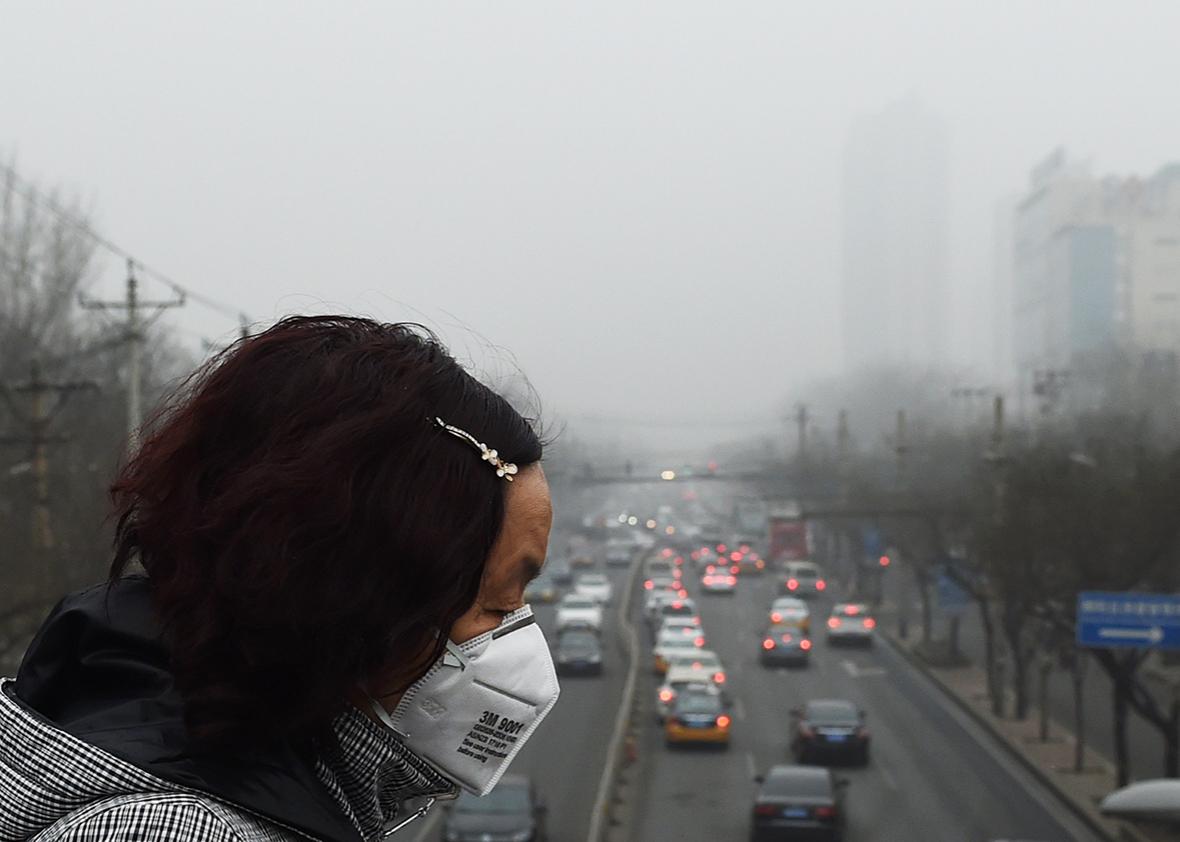This post originally appeared in Caixin.
Since the beginning of winter, many of China’s cities, including the capital, have been smothered in smog repeatedly. The horrendous air quality not only depresses people, it is also driving more and more of them to pack up and leave cities—and even to consider emigration.
The latest Hurun Report of the richest Chinese, published in July by the Hurun Research Institute in Shanghai, showed that pollution is one of the top three reasons cited by wealthy people for leaving the country for good. The other two reasons are seeking better education for children and food-safety concerns. The report said about one-third of China’s richest people have emigrated.
Though studies on a direct relationship between pollution and international migration are limited, research by professors in Singapore offers a good glimpse into the issue. Based on studies of 153 large cities and on data from Baidu, China’s largest search engine, it is clear that the more serious the air pollution, the more people make online searches using keywords related to emigration.
Using daily air quality index, or AQI, data published by cities, the researchers found out that when smog worsens, search keywords like mask, haze, and PM 2.5 increase by as much as 12.7 percent, 27.1 percent, and 32.1 percent, respectively. When a city’s AQI increased by 100 points, residents’ searches on topics related to moving away rose by 2.3 to 4.7 percent the next day.
The effect of air pollution on emigration-linked searches thus seems to be much lower than on keywords like mask or haze. But this is understandable, since only the richest people can possibly consider leaving the country as one of their options, while nearly everybody can afford a mask.
Air pollution also seems to affect people in major cities differently. Beijingers exhibit the strongest desire to flee the smog, while people in Shanghai, Guangzhou, and Shenzhen appear less distressed. One possible reason is that air pollution in the capital is much worse than in the other three megacities.
The far-reaching impacts of this new reason for emigration are not to be ignored. Both brain drain and capital flight are to the exporting country’s disadvantage. Career perspectives and a desire for more income are usually the biggest reasons for people to leave their home countries. But now China is beginning see it will have to deal with the ramifications of “environmental migrants.”
